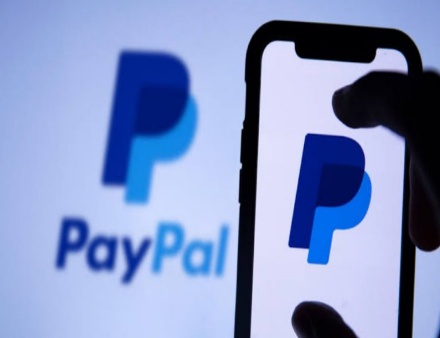In today’s digital world, financial transactions are faster and easier than ever. PayPal stands as one of the most popular platforms for sending and receiving money globally, and it has gained traction in Nigeria despite some limitations. Whether you’re a freelancer, business owner, or just someone looking to make cross-border payments, understanding how PayPal works in Nigeria is crucial.
This comprehensive guide will take you through the steps for sending and receiving money through PayPal in Nigeria, its benefits, limitations, and alternatives.
What is PayPal?
PayPal is an online payment platform that allows users to send and receive money, shop online, and manage payments securely. It operates in over 200 countries and supports multiple currencies, making it an ideal choice for international transactions.
Is PayPal Available in Nigeria?
Yes, PayPal is available in Nigeria. However, its services are limited compared to some other countries. In Nigeria, you can:
- Send Money: You can use your PayPal account to make payments to other PayPal users or shop online at merchants that accept PayPal.
- Receive Money (Limited): While receiving payments via PayPal is technically possible in Nigeria, some account types and restrictions may make this process tricky.
How to Set Up a PayPal Account in Nigeria
Before you can send or receive money via PayPal, you’ll need to set up an account. Here’s how:
Step 1: Visit the PayPal Website
Go to PayPal’s official website. It will automatically detect your location and redirect you to the Nigerian version of the site.
Step 2: Choose Your Account Type
PayPal offers two account types:
- Personal Account: Ideal for individuals who shop online or send money to friends and family.
- Business Account: Designed for businesses that accept payments online.
Step 3: Sign Up
- Click on “Sign Up.”
- Provide your email address and create a strong password.
- Enter your personal or business details, including your name, phone number, and address.
Step 4: Link a Payment Method
- Link a debit or credit card to your PayPal account. Most Nigerian banks, including GTBank, Zenith Bank, and Access Bank, offer debit cards that are compatible with PayPal.
- Verify your card by authorizing a small charge that PayPal will refund once verification is complete.
Step 5: Activate Your Account
Check your email for a confirmation link from PayPal. Click on it to activate your account.
How to Send Money Through PayPal in Nigeria
Step 1: Log In to Your PayPal Account
Visit the PayPal website or use the PayPal app to log in to your account.
Step 2: Click on “Send Money”
- Navigate to the “Send Money” tab on your dashboard.
- Enter the recipient’s email address or phone number linked to their PayPal account.
Step 3: Enter the Amount and Currency
- Specify the amount you wish to send.
- Choose the appropriate currency if you’re sending money internationally.
Step 4: Choose the Payment Method
- You can pay using your linked debit/credit card or PayPal balance.
- Review the transaction fee if applicable.
Step 5: Confirm and Send
- Double-check the transaction details.
- Click “Send” to complete the process.
How to Receive Money Through PayPal in Nigeria
Step 1: Share Your PayPal Email Address
To receive money, share the email address associated with your PayPal account with the sender.
Step 2: Sender Initiates Payment
The sender will log in to their PayPal account and send the payment to your email.
Step 3: Accept the Payment
- Log in to your PayPal account.
- If the payment is pending, you may need to manually accept it.
Step 4: Transfer Funds to Your Bank Account
- Go to your PayPal wallet and transfer the funds to your linked debit/credit card.
- Note that PayPal Nigeria does not allow direct transfers to Nigerian bank accounts. Funds must be withdrawn via your linked card.
PayPal Fees in Nigeria
PayPal charges various fees depending on the type of transaction:
- Sending Money: If you’re sending money internationally, PayPal may charge a percentage of the total amount.
- Receiving Money: A fee of around 2.9% may apply to received payments, depending on the transaction type and sender’s location.
- Currency Conversion: PayPal may also charge a currency conversion fee for international transactions.
Limitations of PayPal in Nigeria
While PayPal is a convenient platform, Nigerian users face certain limitations:
- Restricted Receiving Capabilities: Personal accounts in Nigeria are often restricted from receiving payments. This makes PayPal less ideal for freelancers or businesses relying on international clients.
- No Direct Bank Withdrawals: You cannot withdraw funds directly to a Nigerian bank account; only withdrawals to linked cards are allowed.
- High Fees: Transaction and conversion fees can add up, making PayPal expensive for large transfers.
- Limited Support for Certain Banks: Not all Nigerian banks work seamlessly with PayPal.
Alternatives to PayPal in Nigeria
If PayPal’s limitations are a dealbreaker, consider these alternatives:
- Payoneer: Excellent for receiving payments from international clients, especially for freelancers and affiliate marketers.
- Skrill: A great option for online shopping and receiving international payments.
- Wise (formerly TransferWise): Known for its low fees and competitive exchange rates for international transfers.
- Flutterwave and Paystack: Ideal for local businesses accepting payments in Nigeria and abroad.
Tips for Using PayPal in Nigeria
- Use Verified Cards: Link only verified cards from reputable banks to avoid transaction issues.
- Monitor Exchange Rates: Currency conversion can significantly impact your transactions.
- Keep Your Account Secure: Use strong passwords and enable two-factor authentication (2FA).
- Explore PayPal Business Accounts: If you’re running a business, a PayPal Business account might offer more flexibility and features.
Conclusion
PayPal is a reliable and secure platform for sending and receiving money in Nigeria, but its limitations require users to adapt and find workarounds. By understanding how the platform works and exploring alternatives where necessary, you can navigate the world of online payments with confidence.
Whether you’re a freelancer earning international income or someone shopping online, mastering PayPal in Nigeria opens doors to seamless transactions across the globe.
Keywords: PayPal in Nigeria, Send Money with PayPal, Receive Money with PayPal, PayPal Alternatives in Nigeria, Online Payment Platforms Nigeria




[url=http://bs5best.nl/]Bs2best at[/url] – Блэкспрут зеркало, Блэкспрут зеркало
[url=https://kra18.in]кракен onion[/url] – кракен сайт, кракен onion
[url=https://kra18.in/]кракен тор[/url] – кракен тор, кракен магазин
[url=https://krak17at.ru/]kra17at[/url] – kraken onion, кракен зеркало
[url=https://krak-17cc.ru/]kraken ссылка[/url] – зеркало kraken, kraken darknet market
[url=https://krak17-cc.ru/]кра17.сс[/url] – зеркало kraken, кракен ссылка
[url=https://krak17cc.ru/]кракен онион ссылка[/url] – kra17.сс, kra17сс
[url=https://savagg.com]bestchange sova gg[/url] – sova gg отзывы, bestchange sova
[url=https://krakenzerkala.com/]кракен ссылка зеркало[/url] – kraken рабочее зеркало, кракен зеркало
click here to find out more [url=https://tutoriage.net]term paper[/url]